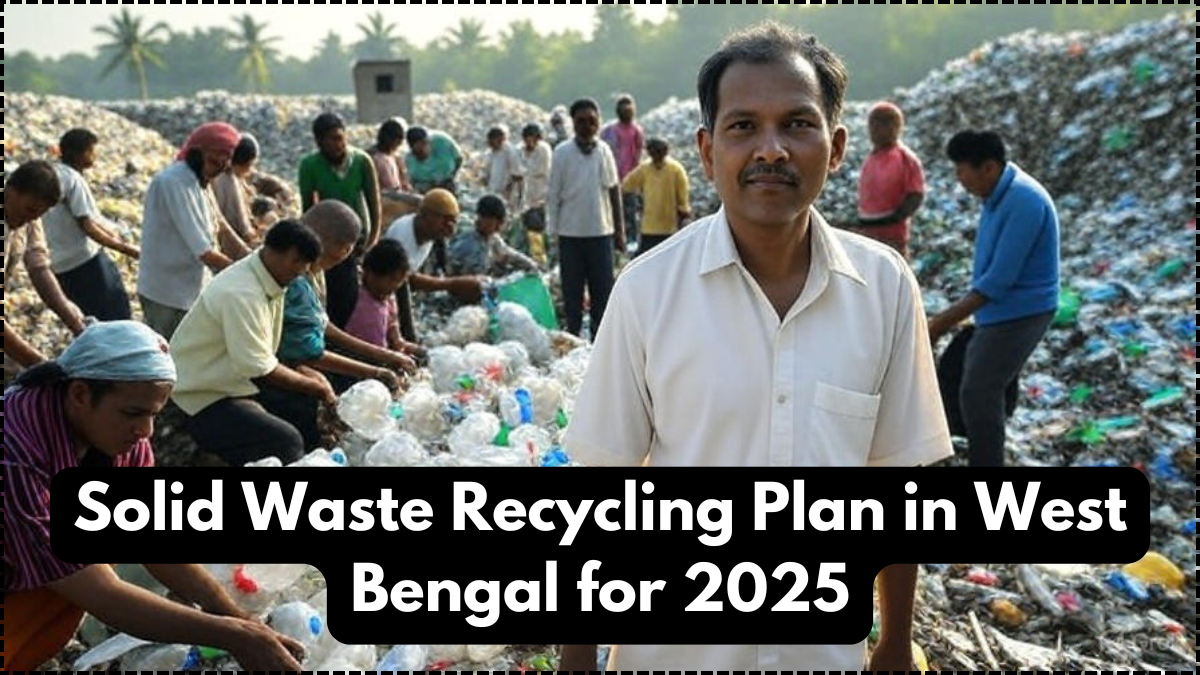The issue of waste disposal has become one of the most pressing environmental challenges, and in 2025, solid waste management WB (West Bengal) has taken center stage. The state has introduced stronger policies and community-based strategies to tackle the growing waste crisis, focusing heavily on new recycling initiative programs that encourage citizens, municipalities, and industries to rethink how waste is handled.
These efforts reflect a shift toward sustainability and accountability. Rather than relying on outdated landfill practices, the government and local bodies are implementing a modern framework that prioritizes waste segregation, composting, and resource recovery. The push for solid waste management WB is not just about cleaner streets; it’s about creating a healthier environment for future generations.

Why West Bengal Is Focusing on Waste Management Now
Rapid urbanization and population growth have made waste disposal more complex than ever. West Bengal generates thousands of tons of solid waste daily, and without intervention, the environmental toll could be severe. That’s why the government’s 2025 strategy for solid waste management WB emphasizes both infrastructure upgrades and public awareness.
The new approach includes:
-
Stronger recycling initiative programs in cities and towns.
-
Partnerships with private companies for innovative waste solutions.
-
Educational campaigns to encourage households to separate biodegradable and non-biodegradable waste.
By integrating these efforts, West Bengal hopes to build a system that is not only efficient but also sustainable long term.
Key Components of the 2025 Recycling Plan
The backbone of the solid waste management WB strategy is a robust recycling initiative that turns waste into resources. Rather than treating garbage as an end point, the new system aims to recover materials, reduce landfill pressure, and promote a circular economy.
| Recycling Component | Purpose | Impact on Waste Management |
|---|---|---|
| Household Segregation | Separate wet and dry waste at source | Improves recycling rates and reduces contamination |
| Composting Facilities | Turn organic waste into fertilizer | Supports agriculture and reduces methane emissions |
| Plastic Recovery Units | Collect and repurpose plastic waste | Decreases pollution and promotes reuse |
Each of these components demonstrates how solid waste management WB is shifting from a disposal mindset to one of resource recovery and recycling.
Benefits for Communities and the Environment
The 2025 recycling initiative is designed to deliver tangible benefits not just for municipal systems but for communities across West Bengal. Cleaner neighborhoods, reduced pollution, and new job opportunities are just a few of the advantages.
Key benefits include:
-
Healthier communities thanks to reduced waste pile-ups.
-
Economic opportunities through recycling industries and compost production.
-
Environmental gains such as lower greenhouse gas emissions and cleaner rivers.
By linking solid waste management WB to daily life, the plan makes recycling and responsible disposal a shared responsibility.
The Road Ahead for Waste Management in West Bengal
While 2025 has marked significant progress, the work is far from over. Authorities plan to expand the recycling initiative to more rural areas, invest in waste-to-energy projects, and tighten enforcement on industries that fail to comply with disposal rules.
This comprehensive effort ensures that solid waste management WB won’t just be a short-term fix but an evolving system designed to keep pace with future demands. West Bengal’s focus on innovation and community engagement is setting a model for other regions to follow.
FAQs
What is the main focus of solid waste management WB in 2025?
The plan focuses on better waste segregation, infrastructure upgrades, and a strong recycling initiative to reduce landfill dependence.
How do recycling initiatives help West Bengal?
The recycling initiative turns waste into usable materials, creating jobs, reducing pollution, and supporting a more sustainable economy.
Are citizens involved in the waste management process?
Yes, households are encouraged to separate waste, participate in composting, and support the solid waste management WB program.
What are the biggest challenges to the recycling initiative?
Challenges include public awareness, infrastructure gaps, and ensuring industries comply with solid waste management WB regulations.
Will West Bengal expand its waste management plan beyond 2025?
Absolutely. The government plans to strengthen the recycling initiative and build more advanced systems to keep improving waste management in the coming years.
Click here to learn more